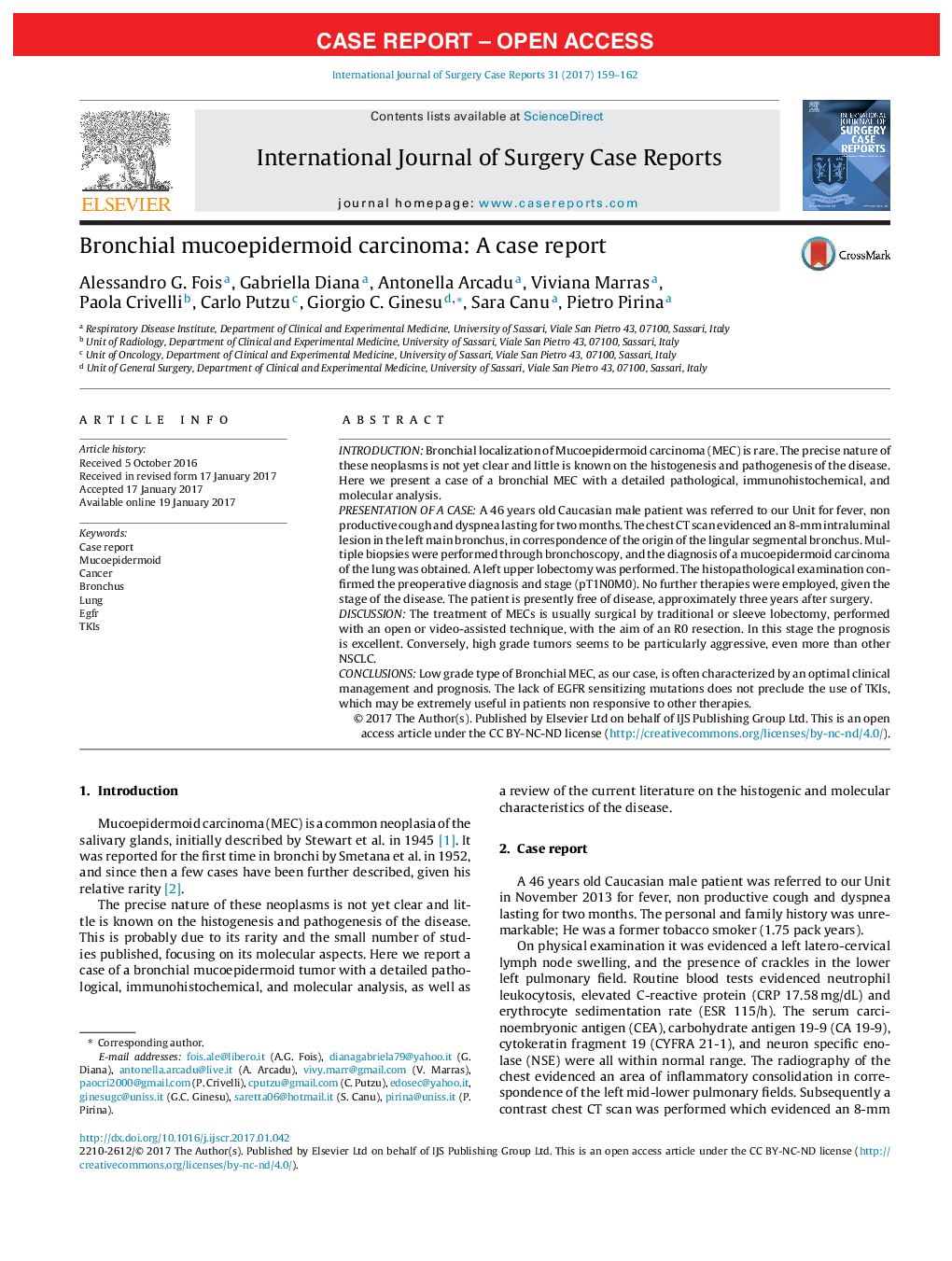| کد مقاله | کد نشریه | سال انتشار | مقاله انگلیسی | نسخه تمام متن |
|---|---|---|---|---|
| 5732936 | 1612083 | 2017 | 4 صفحه PDF | دانلود رایگان |
- Bronchial localization of Mucoepidermoid carcinoma (MEC) is rare (0.1%-0.2% of all lung tumors).
- Knowledge of the molecular features is essential for appropriate clinical management and improved outcomes.
- Only a few studies have been performed in the field of the genetic molecular alterations of MECs.
- EGFR mutations seems to be of primary importance in patients in whom a targeted therapy is under consideration.
- The lack of EGFR sensitizing mutations does not preclude the use of TKIs, which may be extremely useful in patients non responsive to other therapies.
IntroductionBronchial localization of Mucoepidermoid carcinoma (MEC) is rare. The precise nature of these neoplasms is not yet clear and little is known on the histogenesis and pathogenesis of the disease. Here we present a case of a bronchial MEC with a detailed pathological, immunohistochemical, and molecular analysis.Presentation of a caseA 46 years old Caucasian male patient was referred to our Unit for fever, non productive cough and dyspnea lasting for two months. The chest CT scan evidenced an 8-mm intraluminal lesion in the left main bronchus, in correspondence of the origin of the lingular segmental bronchus. Multiple biopsies were performed through bronchoscopy, and the diagnosis of a mucoepidermoid carcinoma of the lung was obtained. A left upper lobectomy was performed. The histopathological examination confirmed the preoperative diagnosis and stage (pT1N0M0). No further therapies were employed, given the stage of the disease. The patient is presently free of disease, approximately three years after surgery.DiscussionThe treatment of MECs is usually surgical by traditional or sleeve lobectomy, performed with an open or video-assisted technique, with the aim of an R0 resection. In this stage the prognosis is excellent. Conversely, high grade tumors seems to be particularly aggressive, even more than other NSCLC.ConclusionsLow grade type of Bronchial MEC, as our case, is often characterized by an optimal clinical management and prognosis. The lack of EGFR sensitizing mutations does not preclude the use of TKIs, which may be extremely useful in patients non responsive to other therapies.
Journal: International Journal of Surgery Case Reports - Volume 31, 2017, Pages 159-162
